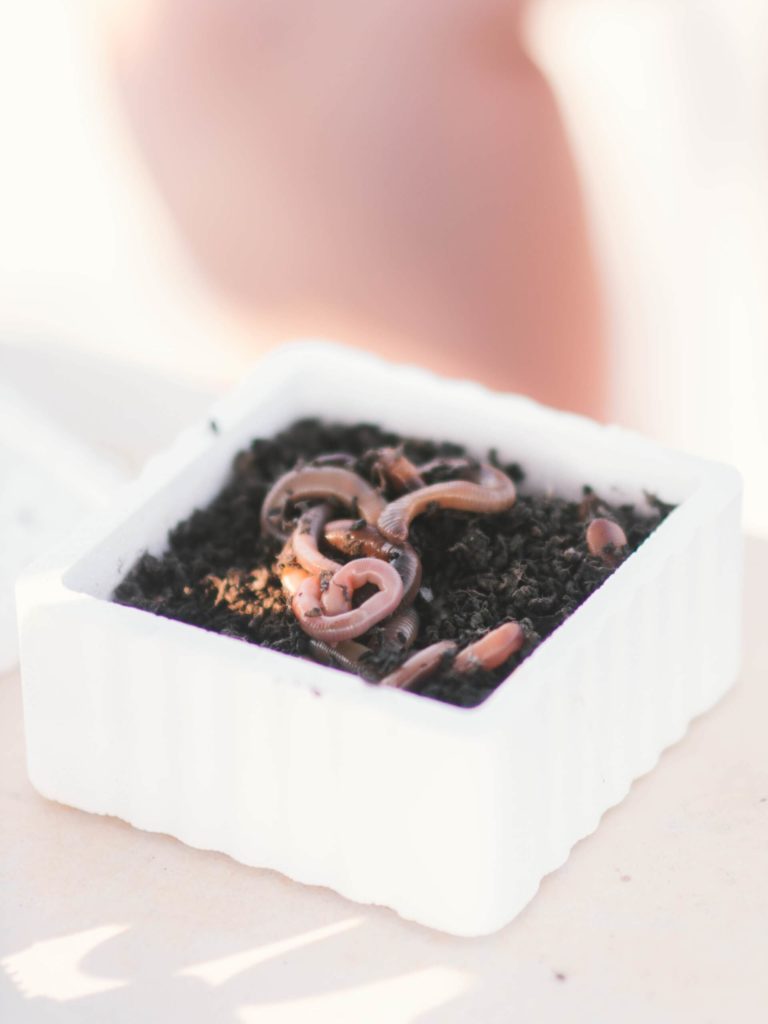Introduction
Worms like a wide variety of foods, however it’s important to take our Red Wigglers (and other species) digestion into consideration.
Their digestion is different than ours, and thus some foods (that are anti-microbial and anti-fungal) can be harmful to their digestion.
Any type of citrus, garlic, onion (alliums), or spicy foods should be avoided. Pretty much anything with a lot of spice or very aromatic shouldn’t go in the bin.
Likewise, I always recommend feeding the worms the most organic and clean inputs you can. It’s fine if they’re already going bad, worms eat the organisms breaking down the food, so they like those yucky mushy spoiled fruits and veggies.
Note: I’ve left out some common ones like cardboard, q-tips, junk mail, newspapers, etc… These are fine for non-organic bins, it’s better than throwing those things in the trash probably… but just be aware that things like toxic ink on junk mail and newspapers, and the industrial by-products in the production of things like tissues and paper towels, will make their way into your soil if you’re using them as inputs into your worm bin.
So cardboard and other paper-based trash will work in a worm bin, but it’s: A. Not optimal for worm health and B. I would only use that dirt for front yard plants or in an area where I wont be consuming it’s fruit, or a patch of dirt I don’t really care about. Perhaps you can leave the worm castings in an already polluted area. There it will actually improve the soil.
A Complete List of Foods Worms Can and Can’t Eat

Great
- Cantaloupe Rinds
- Lettuce
- Pumpkin
- Watermelon Rinds
Good
- Apples
- Avocados
- Banana Peels
- Beet Root
- Breads (moldy is fine)
- Carrots
- Cauliflower
- Cereals
- Cherries
- Coffee Filters (note: only if made from 100% organic material / paper)
- Coffee Grounds
- Cooked grains
- Corn Cobs (Just take a long time to break down)
- Crushed Egg Shells
- Cucumbers
- Feathers
- Flour
- Flowers
- Green Beans
- Guavas
- Herbs
- Leaves
- Mushrooms
- Nutshells (only unsalted / non -toxic ones)
- Oatmeal
- Old fabrics (wool, cotton, silk) (note: make sure they are made of organic materials. Cotton is one of the most pesticide-ridden crops, and it’s very difficult to wash all the toxins out, even after many washings. See: Killer Clothes by Clement as a reference.)
- Peaches
- Pears
- Radishes
- Rhubarb
- Rice
- Sand
- Spinach
- Squash
- Sugar
- Sweet Potatoes/Yams
- Tea Bags (remove staple) (note: only if the actual teabag is made of a 100% organic material. I typically avoid throwing in teabags as they typically have plastic or are made of not very great sources of paper).
- Water Cress
Poor
- Baked goods
- Beans (black, kidney, butter)
- Blueberries
- Citrus
- Garlic
- Lemons
- Olives
- Onions
- Oranges
- Pasta
- Plums
- Potatoes
Avoid
Source: Modified from https://www.reddit.com/r/Vermiculture/comments/24r5tb/expansive_list_of_compost_food_dos_and_donts/
- Alcohol
- Bones
- Dairy Products
- Diseased Plants
- Dryer Sheets
- Feces (human or pet)
- Fireplace Ash
- Grass Clippings
- Gum
- Hot Pepper
- Inorganic Products
- Meat
- Oils
- Particle Board
- Pine needles
- Pineapple
- Plywood
- Preservatives
- Salty Foods
- Sawdust
- Shells
- Spiny clippings (rose, thorns, because your hands 🙁 )
- Treated Wood
- Vinegar
Conclusion
This might seem like a confusing list, but don’t worry, after referencing it a few times (and seeing for yourself what your worms like!) you’ll get the hang of it quite quickly.
Worms are pretty resistant, so if you accidently feed them the wrong thing, it’s easy to take it out, and if not, don’t stress it too much. The worms will bounce back soon enough.
Post image credit: Sippakorn Yamkasikorn @ Pexels